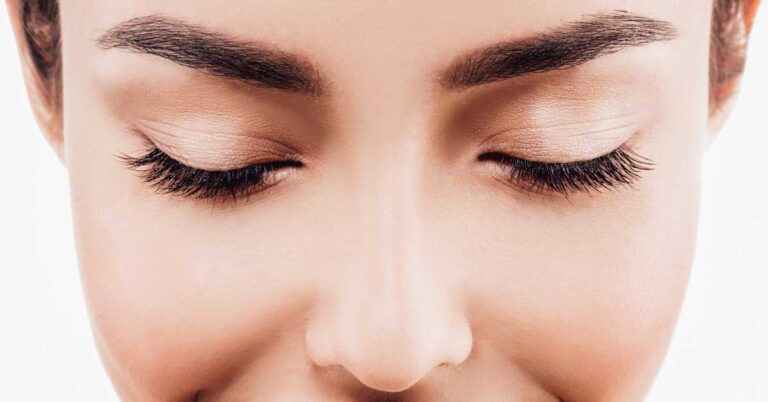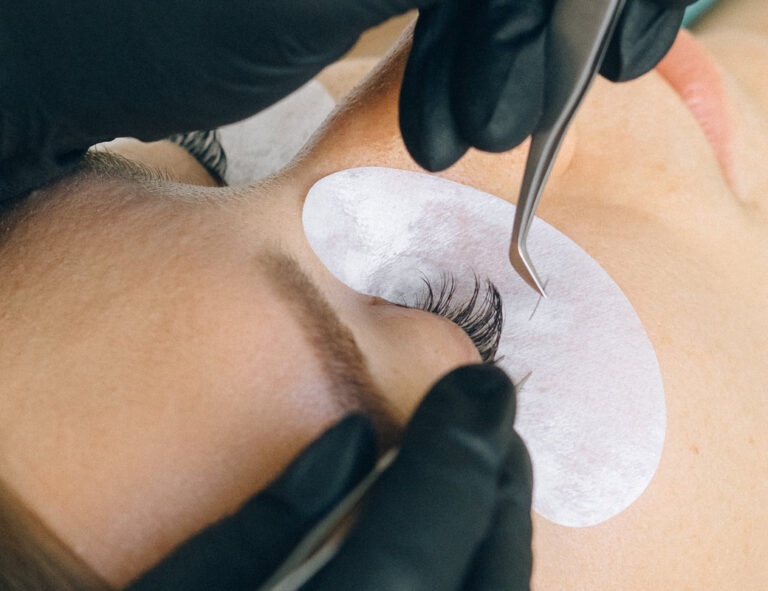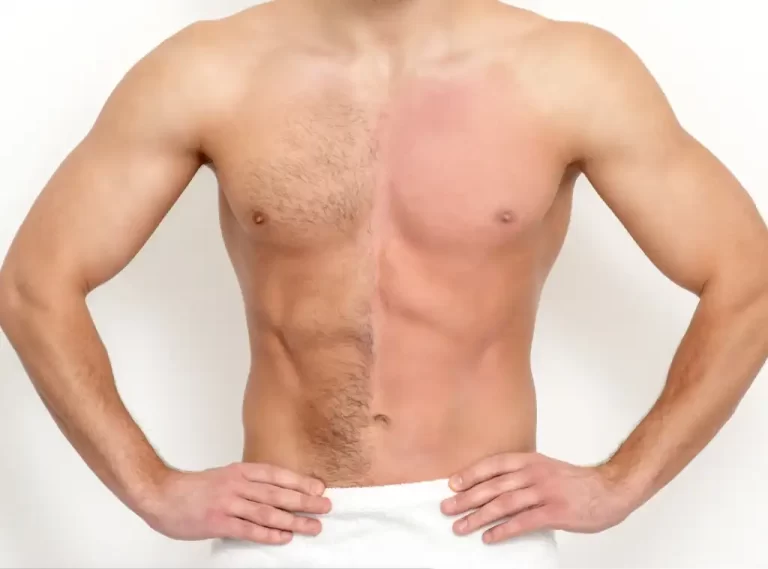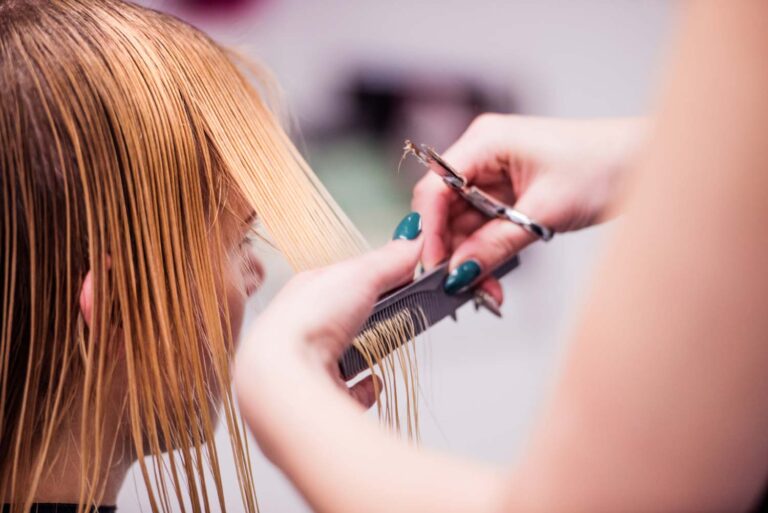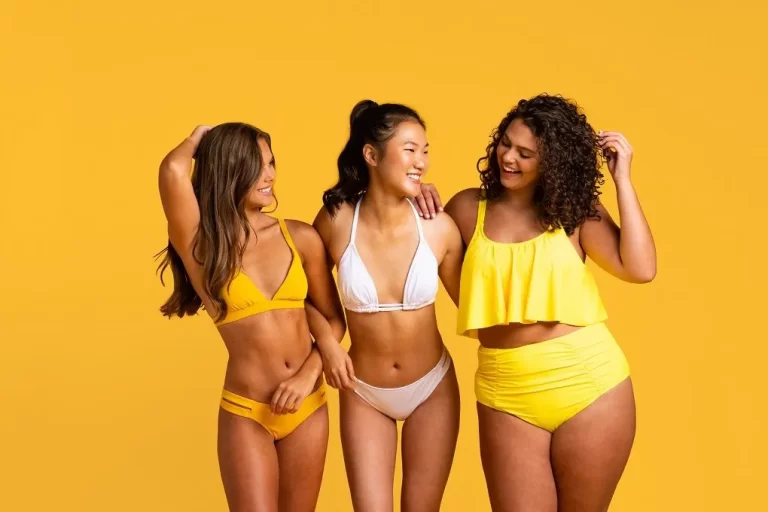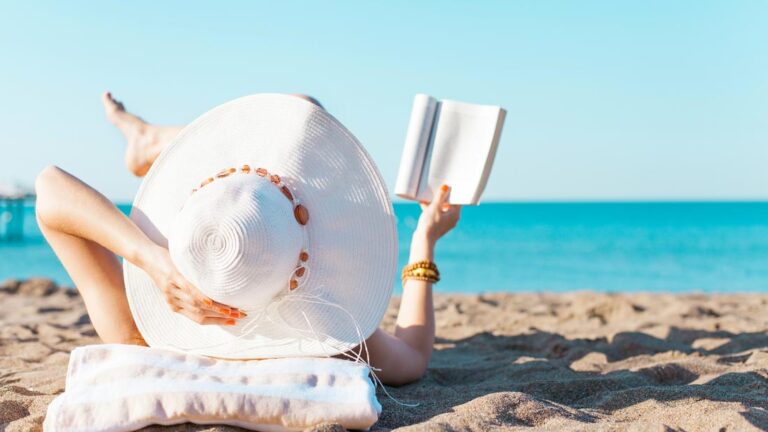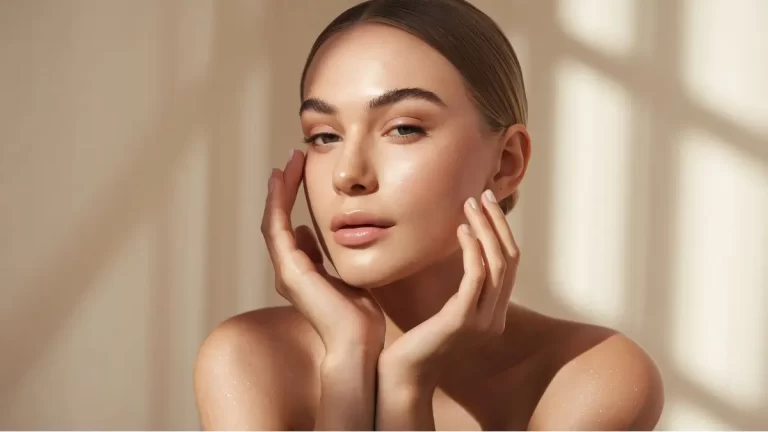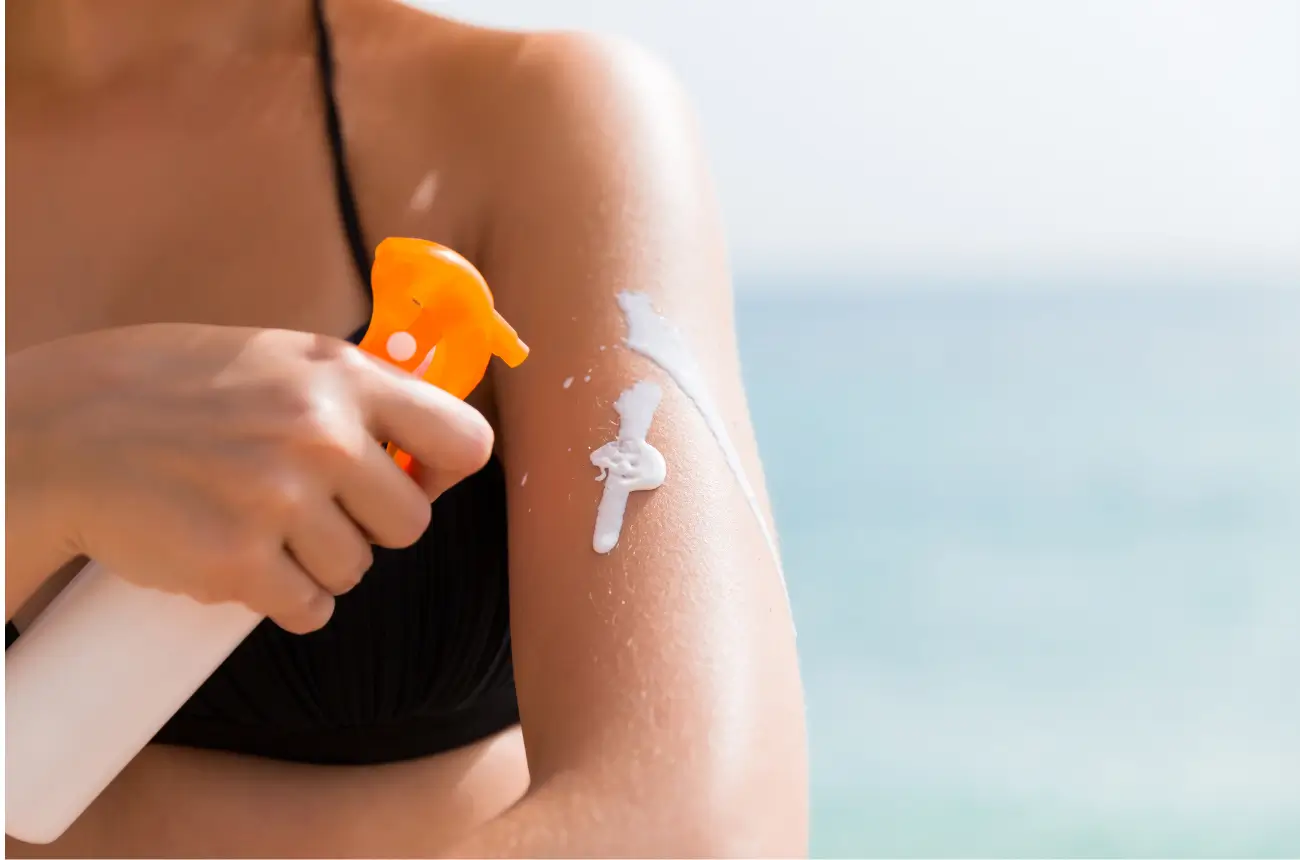
Okay, we’re 100% really into looking tanned and radiant all summer long. But there’s a whole host of fake tanning options that help us to bronzed beach body perfection, without the serious skin damage. Because what we’re not into is skin cancer, premature wrinkles, acne scarring, and pigmentation. Which is why we need to talk about SPF. Keep scrolling down for the answers to every question you have about SPF.
THE BIG QUESTIONS
WHAT DOES SPF MEAN? SPF stands for ‘Sun Protection Factor’ and measures the amount of protection you get from the sun’s UV rays. The higher the SPF, the better the protection.
HOW DOES SPF WORK?
SPF typically ranges from 2 to 50, which tells you how long it will take for your skin to burn compared to if you weren’t using any protection. So, if it typically takes you 10 minutes to burn without protection, an SPF30 will protect you for 30 times longer, which is 5 hours.
HOW OFTEN SHOULD YOU APPLY SPF?
Because sunscreens can easily wear off (due to water exposure and contact with clothing), if you’re in strong, direct sunlight you should reapply every 2-4 hours (and more frequently with exercise, swimming, or towelling off).
WHAT ARE UVA AND UVB RAYS?
They’re both ultraviolet rays. UVA is a long wave which penetrates the skin’s thickest layer whereas UVB is a short wave which burns the surface layer of skin. UVA is responsible for tanning, but it’s also the main culprit for triggering the visible signs of aging – wrinkles and brown spots. UVB rays are the ones that do serious damage – they’re responsible for sunburn as well as tanning and premature ageing, and they also cause the long-term damage that can lead to skin cancer.
WHY SHOULD YOU WEAR SUNSCREEN?
Sunburn isn’t just annoying, it’s your skin’s way of sending you a warning sign – your cells are damaged. UVB rays damage the DNA in your cells – if this builds up. It causes cells to mutate, which can lead to cancer. Sun exposure is the biggest trigger of aging skin – just as an apple goes soft and wrinkly when it’s left out in the sun, so will your skin. You exfoliate your skin using AHAs/BHAs – they’re great for clearing and brightening your skin, but they leave your skin super sensitive to sun damage.
HOW MUCH SUNSCREEN SHOULD YOU APPLY?
Half a teaspoon for face and neck the equivalent of a full-size shot glass each application on a typical beach or pool day you should go through half a bottle.
DO I ONLY NEED TO WEAR SUNSCREEN WHEN IT’S SUNNY?
It’s very important to wear sunscreen when it’s sunny because that’s when you’re prone to burning. But really, in order to prevent long-term damage, you should add an SPF into your everyday routine. UV rays can penetrate through clouds, windows, and even clothing, so if it’s not prevented, damage builds up slowly over time.
WHAT’S THE DIFFERENCE BETWEEN PHYSICAL SUNSCREEN AND CHEMICAL SUNSCREEN?
Here’s where things get scientific. Chemical sunscreens absorb radiation and convert it to heat to prevent UV damage from occurring (so sun is basically absorbed and then released from the skin), whereas physical sunscreens act as an actual barrier to reflect UV radiation and prevent the sun’s rays from even penetrating the skin. For this reason, physical SPF can sometimes feel quite thick and chalky, whereas chemical SPFs will be much lighter and smoother on the skin. To work out whether a sunscreen is physical or chemical, check the ingredients list. Essentially, if it contains either zinc oxide or titanium dioxide then it’s physical. And if it doesn’t, then it’s chemical.
THINGS TO REMEMBER…
Expiry dates – most sunscreens will last for a year after opening. Once they’ve gone-off, the formulas can deteriorate and end up useless. Don’t forget all areas – the back of your neck, tops of your ears, backs of your hands, your lips, and your scalp are all vulnerable to damage, but often forgotten. Apply at least 30 mins before sun exposure – this gives the ingredients enough time to absorb into skin. You don’t need higher than SPF50 – 50 gives you 98% protection from the sun’s rays, so it’s very hard to get any higher than that!
If you found this helpful then let me know in the comments section below. Want me to cover another topic of your interest pertaining to beauty? If so, then like us and follow us on social media, and post to any of our social media profiles the topic you’d like us to discuss:
Facebook @GlaminatorBeauty | Twitter @GlaminatorBeauty | Instagram @GlaminatorBeauty


